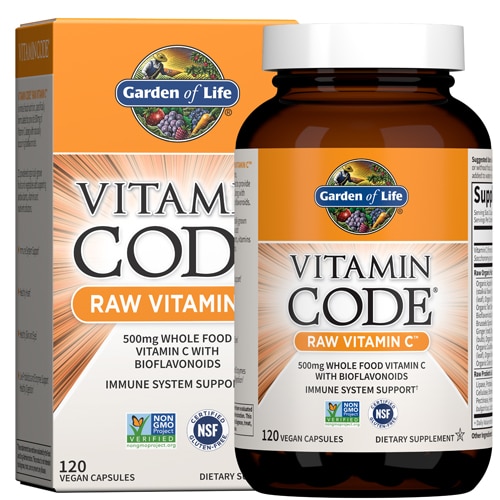If you’re diligent about your diet—eating not just for your tummy but also for your brain and body—congratulations: Nutrition is one of the greatest ways to promote health, happiness and well-being.
But even the most commendable eaters may fall short on a few key nutrients and choose to augment their diets with vitamins and supplements.
This, too, is praiseworthy. But as anyone who has ever walked into a vitamin aisle will tell you, the sheer number of choices can be downright dizzying. In fact, the Food and Drug Administration reports that there are 29,000 supplements on the market, including “vitamins, minerals, botanicals, sports nutrition products and weight managements products.”
With that in mind, I’ve rounded up the top doctor-recommended vitamins and supplements—and why you should consider adding them to your shopping cart:
Vitamin C
Vitamin C is my favorite antioxidant. Found in a variety of delicious foods—including oranges, kale, grapefruit, broccoli and more—this powerhouse of a nutrient supports your immune system and promotes connective tissue health such as collagen production (a boatload of good news for anyone facing changes in their skin due to sun damage and/or aging). Vitamin C also naturally supports the neutralization of free radicals. What’s more, studies demonstrate that it can help quench free radicals that damage healthy cells.†
Bonus tip: Note that taking too much Vitamin C—an easy enough mistake, especially if you’re consuming chewables or gummies—can cause diarrhea. Follow the recommended dosage for the best (and most painless) results.
Iron
Iron is a vital mineral that’s essential in making red blood cells. Especially important for menstruating women—particularly those with heavy periods—iron supplements naturally support adequate levels of this nutrient in the body.†
That said, iron supplements are not for everyone; too much iron can produce more free radical activity (inflammation). In other words? Have your doctor check your blood levels for ferritin—the storage form of iron—and iron in the blood.
Bonus tip: For optimal absorption, avoid taking iron supplements with calcium supplements or calcium-rich food (such as milk and yogurt). Rather, take iron supplements in small doses with vitamin C. (Didn’t I say it was a powerhouse of a nutrient?)
Magnesium
Consider it the granddaddy of minerals. As the second most abundant element in the human body, magnesium regulates over 300 biochemical reactions, including heart health, fat breakdown, muscle contractions, stress and blood coagulation.†
As Carolyn Dean, a nutritionist and the author of The Magnesium Miracle, puts it, “An astounding number of biochemical reactions in the body cannot do without magnesium. It helps you to digest food...and promotes a healthy heart.” Indeed, with 3,571 magnesium binding sites in the body, the “miracle mineral” supports hormone health, bone health, skin and energy.†
Bonus tip: Anxious lately? Boost your magnesium intake. Research shows that we lose magnesium in our urine when we’re stressed.
Calcium
Calcium is synonymous with bone health. This is for a good reason: As the most plentiful mineral in the body, calcium supports not only bones and teeth but also a number of fundamental functions, including blood pressure and cholesterol levels, muscle function, heart rhythm and more.†
Myriad foods provide calcium—beans, dairy products and leafy greens—but if you’re not getting adequate amounts in your diet alone, consider taking an additional 1,200-1,500 mg per day. Calcium carbonate may be the most common form of calcium supplements, but aim for calcium citrate instead—it’s more easily absorbed.
Bonus tip: People taking certain medication can experience impaired calcium absorption due to a drug’s effect in blocking the stomach acid necessary to absorb this mineral. Again, reach for calcium citrate—it’s more acidic—but also use caution: Similar to vitamin C, too much calcium citrate can cause diarrhea.
Vitamin D3
And speaking of bone health:
Vitamin D3 is also critical for bone health and should be taken with calcium for maximum effectiveness—not only for your skeletal system and teeth, but also for proper immune function (every tissue in the body has vitamin D receptors) and for making the “feel good” neurotransmitter, dopamine.†
Bonus tip: Have your blood levels checked before you self-prescribe yourself vitamin D3. Why? Too much Vitamin D3 can cause side effects, such as an increased risk for kidney stones.
Fish oil
Omega-3s—which are ample in fish oil—have long been known to support healthy inflammatory processes in the body. Considered the friendliest of fats, omega-3s encourage overall health while also supporting healthy cholesterol levels, cognitive function, joint comfort and flexibility, and heart health.†
For those who shy away from eating fish, fish oil—nature’s richest form of omega-3 fatty acids—can also organically support skin health.†
Bonus tip: Take fish oil daily to truly reap its benefits. Daily intake helps omega-3s get incorporated into cell membranes—rendering them more fluid and selectively permeable—and enhance their anti-inflammatory effects.
Multivitamins
Think of multivitamins as an insurance policy—the vote you take daily to ensure that you’re getting enough nutrients to naturally support a healthy, balanced diet. Typically containing a vitamin B complex, minerals, and antioxidants, plant-based multivitamins may combat vitamin and mineral deficiencies and bolster well-being.†
Not all multivitamins are created equal, however. Search for supplements that don’t combine both calcium and iron, as these are best taken separately (as discussed, one cancels out the other). Rather, choose a multivitamin that contains just one of these minerals, then take an additional supplement, preferably at another time.
Additionally, look for activated forms of nutrients, which are often better absorbed. Beware of additives and fillers, and go with a multi that includes vitamin E complex—this, too, is central to your overall health.
Bonus tip: Avoid multivitamins that contain synthetic folic acid and always choose natural folate instead. Why? Some people have a genetic mutation that prevents their bodies from easily converting folic acid to its active form, 5-methyltetrahydrofolate (5-MTHF).
Above all? Keep in mind that nutritional supplements are just that—supplements to an already nutritious diet. So save some space in that shopping cart: The produce aisle is calling.
†These statements have not been approved by the Food and Drug Administration. These products are not intended to diagnose, treat, cure or prevent disease.





